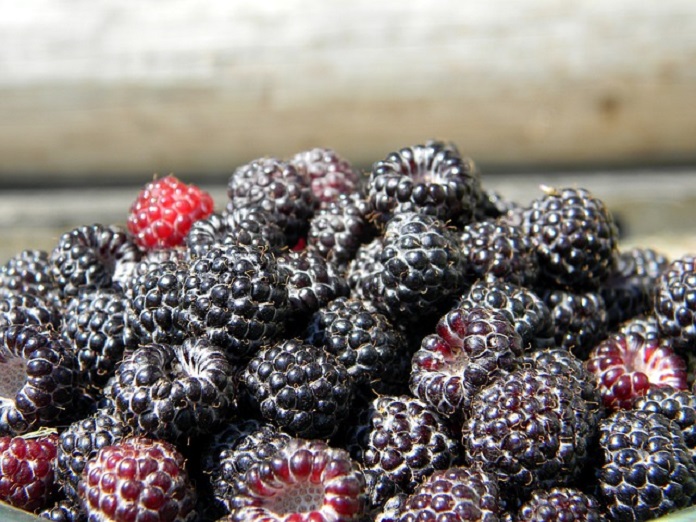Study suggests that a single serving of black raspberries can help control contact dermatitis.
Ever suffered from an itchy rash after touching something at work? You are not alone; occupational contact dermatitis affects between 15 to 20% of the general adult population and is triggered by exposure to many items such as rubber gloves, dyes, and jewelry. Contact hypersensitivity is a form of occupational contact dermatitis, characterized by a delayed response to contact with normally well-tolerated substances. It results in redness, scaling, swelling, and itchiness of skin and is primarily managed through use of corticosteroids.
Scientists at Ohio State University, USA have recently shown that including black raspberries in the diet reduces inflammation or swelling resulting from contact hypersensitivity in mice. As Dr. Steve Oghumu, senior researcher and assistant professor of pathology at Ohio State University notes, “A lot of times, treatments [for contact hypersensitivity] are directly applied to the skin – things like steroids. And, it was interesting that the mere consumption of a fruit can achieve the same effects.” The study was published in the journal Nutrients earlier this month.
Dr. Oghumu and his colleagues have been studying the effects of compounds present in black raspberries on immune cells, specifically within the context of preventing oral cancer. Their previous studies showed that diet rich in black raspberries reduced inflammation in certain types of cancer. This observation prompted them to examine the effects of black raspberry-rich diet on contact hypersensitivity in pre-clinical mice models.
Black raspberries are rich in anthocyanins; these are the pigments that impart the dark color to certain food plants including blueberries, raspberries, and black soybeans. The researchers at Ohio State studied the effects of whole black raspberries and PCA or protocatechuic acid, which is the major anthocyanin present in black raspberries. They fed different groups of mice with black raspberry powder, PCA or no dietary supplement. These mice were also exposed to DNFB, a chemical that elicits a similar response as contact hypersensitivity in humans. After three weeks of this diet, the mice were re-exposed to the irritant DNFB on one of their ears.
The study showed that the mice fed with black raspberry supplement or PCA, showed reduced swelling in the ear exposed to the irritant as compared to mice that were not fed black raspberries or PCA. The researchers also studied the underlying immune response changes and their results suggest that the reduced swelling was due to reduced migration and maturation of a type of immune cell called dendritic cells. These cells act as messengers of the immune system where they relay signals that result in inflammation. In contact hypersensitivity dermatitis, when the body is exposed to an irritant or allergen, the immune system kicks in and floods the exposed region with cells that cause inflammation and itchiness. If the inflammation can be inhibited or controlled, then the dermatitis will also be reduced.
Dr. Oghumu explains the findings as, “The immune system is very complex, with multiple players, and so once you begin to identify the unique cells that are being affected by the berries then it helps us to see how berries are inhibiting inflammation. A lot of the bad effects that we see are not always due to the pathogens or allergens themselves, but are due to the way our body responds to these triggers. [] And so one way to manage these types of diseases is controlling that response, and that is one of the things black raspberries appear to be able to do.”
The findings from this study are a harbinger for examining the role diet plays in fighting diseases from cancer to contact hypersensitivity dermatitis. While more work is needed to identify specific molecules present in raspberries that lead to decreased inflammation, this study lays the groundwork for future studies.
References:
Original study: Anderson, Kelvin & Ryan, Nathan & Siddiqui, Arham & Pero, Travis & Volpedo, Greta & Cooperstone, Jessica & Oghumu, Steve. (2020). Black Raspberries and Protocatechuic Acid Mitigate DNFB-Induced Contact Hypersensitivity by Down-Regulating Dendritic Cell Activation and Inhibiting Mediators of Effector Responses. Nutrients. 12. 1701. 10.3390/nu12061701.
Press release: https://www.eurekalert.org/pub_releases/2020-07/osu-ims070220.php
Image by Alina Kuptsova from Pixabay


